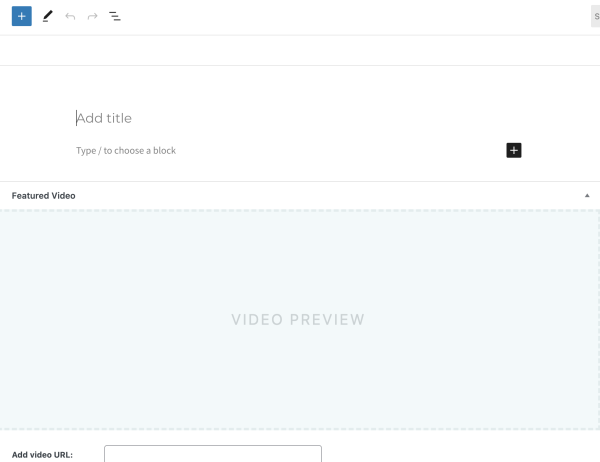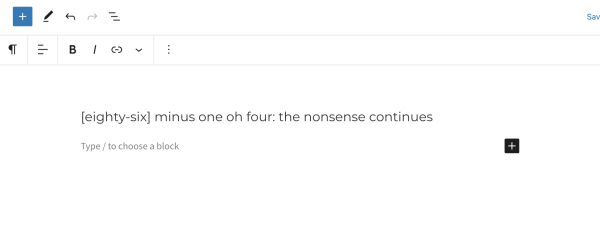
This is your daily reminder that the Gutenberg editor of WordPress is a dumpster fire. I don't know that the people who made it are literally incompetent as far as technical coding goes: the bones of the program seem to be a well-functioning machine that rarely breaks down.
But Gutenberg is incompetent as a text editor, and whoever designed it was literally incompetent in terms of the "blocks" based design that they chose to push on all of us, because the "blocks" editor literally does not work as a text editor: basic things like selecting text, cutting it, and pasting in into a new place don't work, because the "blocks" break up your text selections and prevent you from maneuvering in the document.
Microsoft Word doesn't have this problem. Google Docs doesn't have this problem. Overleaf doesn't have this problem. Dropbox Paper does, a little, and it shares the incorrect (and I will fight you on that) "Where's Waldo" style interface which hides the text editor controls when you're not hovering over them, making them undiscoverable - perhaps Dropbox was also infected by "user experience."
But most damningly, the Classic Wordpress editor didn't have this problem. They had something that wasn't broke, and they didn't fix it with the incompetent thing they replaced it with, but they were so committed to forcing everyone to use their new thing, they broke the old one. (This is your daily reminder that using Classic Editor in modern WordPress destroys the formatting of the posts).
And I want to point out: the person who did this, Matt Mullenweg, did this to us on purpose:
We Called it Gutenberg for a Reason
It moves the WordPress ecosystem forward, but it also moves the whole web forward. Which is scary! Because change always is, and this is a big one. But a scary thing is usually a thing that leads to growth, if you can push through it. ... apathy would worry me a lot more than disagreement or controversy. Creating great software will never make every person happy.
So, in case you have trouble parsing this ... Matt and his team wanted to push a technical change which benefited their "ecosystem" - likely, just some internals of their system that they wanted to clean up, which would make it easier to implement features no-one wanted - and they started with a mindset that interpreted their failures as user unhappiness and software problems as complaints, which people needed to just power through so they could get to their new world order.
Matt, you took something that worked and broke it, and replaced it with something which will literally never work. Text editing is not block editing, and it's never going to be. It's a serial string of tokens that encodes a proxy of speech, and if you try to impose blocks on it, your editor will fail, as yours failed me today.
I was working on a post. One not much more complicated than this one. But simply cutting and pasting text was something that the Gutenberg editor failed miserably at, and I was not able to successful edit my text. Even copying it out to Word took several tries, because not only did Gutenberg make it hard to select all the blocks, it did not even copy the text out of all the blocks, so I had to do it piecemeal.
I don't actually want to give up on Gutenberg becoming better. But I strongly feel the only way to successfully fix the interface it is to thow away the key metaphor behind it - the block. That's fine as a backbone behind the text which WordPress uses for rendering - but a text editor should manipulate text.
-the Centaur
Pictured: some nice flowers which the previous owners planted near a corner.

